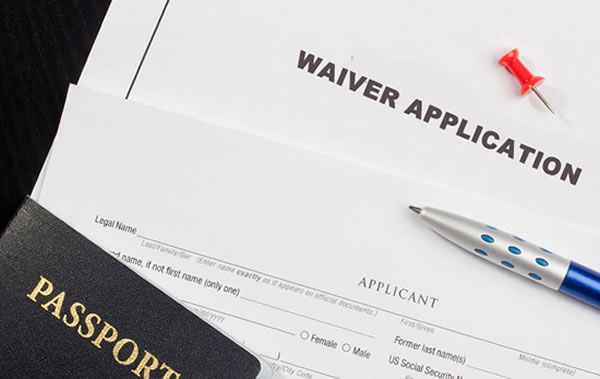When Inadmissibility Grounds for an Alien can be Waived

When Inadmissibility Grounds for an Alien can be Waived
Grounds of inadmissibility are applied only to non-citizens who are seeking admission to the United States. The term admission refers to a non-citizen obtaining lawful entry into the United States after an immigration officer inspected him or her. A non-citizen is considered an applicant for admission once they arrive at the port of entry to the United States but have not been lawfully admitted. Non-citizens can also be considered inadmissible, even if living in the United States for a few years, if they avoided inspection when they entered the country.
Adjusting to Permanent Resident Status or Seeking Naturalization
Non-citizens who are applying to adjust their status to permanent resident status is also considered seeking admission therefore causing them to be inadmissible. Because the grounds for inadmissibility and subject of removal are different, the same individuals might not be removable if they remain nonimmigrants.
Non-citizens who are seeking naturalization are also considered inadmissible because a requirement to apply for naturalization is proving that the applicant was lawfully admitted to permanent residence. If the Bureau of Citizenship and Immigration Services determines that an applicant for naturalization was inadmissible at the time, he or she became a permanent resident, it will not grant the applicant citizenship and it initiate removal proceedings. A non-citizen will only be considered inadmissible if he or she applies for immigration benefits.
Grounds of Inadmissibility
The immigration law requires a higher standard for individuals who wish to be admitted to the United States than individuals who have been properly admitted. Individuals who have been properly admitted to the U.S. usually have jobs, family, or friends that tie them to the country. Those individuals should only be removed if they expressed unacceptable behavior. However, individuals who are seeking admission are required more strict demands because it’s not common for them to have these ties to the country.
An individual can be considered inadmissible if they:
- Convicted multiple crimes
- Trafficked controlled substances
- Engaged in Prostitution and commercialized vice
- Engaged in money laundering
- Engaged in human trafficking
- illegal entrants and immigration violators proscription
- health-related grounds
- labor certification requirements and qualifications for certain immigrants.
- previous unlawful presence
- ineligibility for citizenship
Inadmissibility Grounds can be Waived
Inadmissibility grounds can be waived for certain individual cases. The Immigration and Nationality Act (INA) allows Secretary for Homeland Security to waive any of the inadmissible grounds for nonimmigrants applying for a visa or seeking admission, however, waivers for immigrants are limited. The INA provides waiver for any non-citizen who has communicable disease of public health for example, HIV, and who has adopted a child of a U.S. citizen or a permanent resident. This waiver is also given to non-citizens who were assaulted or beaten by a U.S. citizen or permanent resident spouse or parent. inadmissibility may be waived for persons who have committed crimes of moral turpitude or a single controlled substance violation. Individuals may qualify for this waiver if
- The crime was committed more than 15 years before they applied for admission
- the individual is the spouse, parent, son, or daughter of a U.S. citizen or permanent resident and denying admission would cause extreme hardship to the citizen or permanent resident
- the individual is seeking permanent residence after being battered by a U.S. citizen or permanent resident spouse or parent.
Waivers of the criminal grounds of inadmissibility are not available to lawful permanent residents that committed an aggravated felony since being admitted to permanent residence, or permanent residents who have lived in the U.S. for fewer than seven years before the commencement of removal proceedings. A permanent resident who commits an aggravated felony will be denied admission, but a nonimmigrant can obtain a waiver.
Contributed by Svetlana Prizant, an Award Winning New York Immigration Lawyer
Call or Visit Prizant Law Today At:
Prizant Law
118-21 Queens Blvd Suite 507
Forest Hills, NY 11375
718-407-0871
